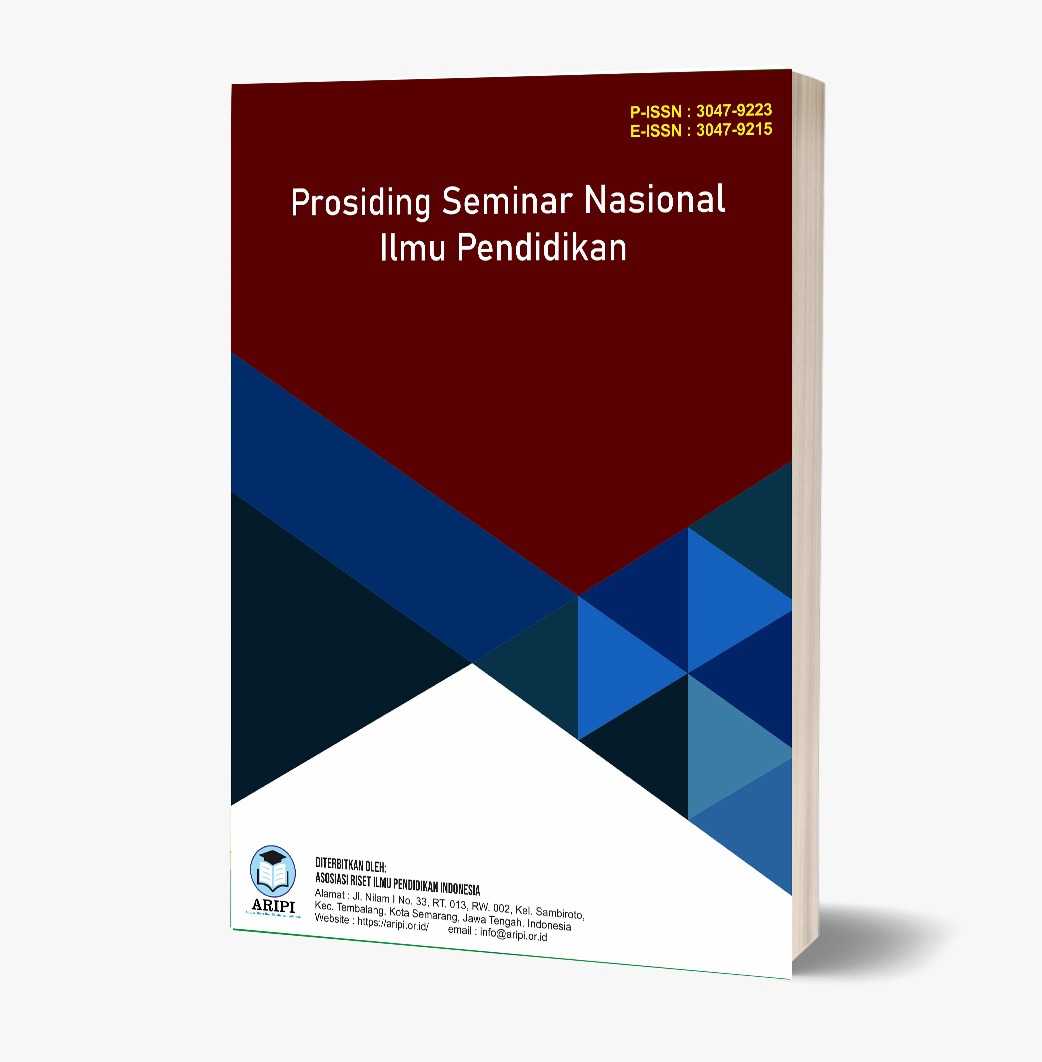Analisis Kesalahan Mahasiswa Pendidikan Matematika Unimed dalam Menyelesaikan Soal Induksi Matematika
DOI:
https://doi.org/10.62951/prosemnasipi.v2i1.126Keywords:
Error analysis, Mathematical induction problem, Conceptual ErrorAbstract
This study aims to describe the difficulties of mathematics education students in solving mathematical induction problems in terms of concept understanding and calculation aspects. This type of research is descriptive using a qualitative approach. Based on the results of data processing, conclusions can be drawn, namely: (1) Concept errors, namely errors made by students because they do not understand the concept well. (2) Strategy error, which is an error that occurs because students choose the wrong way to work. (3) Calculation errors, namely errors in performing mathematical operations. Systematic errors, which are errors related to the wrong selection of extrapolation techniques. (4) Of the 10 mathematics education students, the data description of the research results shows an average in the normal category, namely 53%. Translated with DeepL.com (free version).
References
Dubinsky,E(1991).Reflektive Abstaction in Advanced Mathematical Thingking. In Advanced Mathematical Thingking (pp.95-123)
Grimaldi, R. P.(1991). Discrete and Combinatorial Mathematics : An Applied Intruction.Pearson.
Moleong,L.J. (2007). Metodologi Penelitian Kualitatif. Bandung : PT Remaja
National Council of Teachers of Mathematics (NCTM).(2000).Principles and Standards for School Mathematics.NCTM.
Polya, G(2004) How to Solve It : A New Aspect of Mathematical Method. Princeton University Press.
Rosdakarya. Mulyono, A. (1999). Pendidikan Bagi Anak Berkesulitan Belajar. Jakarta: PT. Rieneka Cipta.
Rosen,K.H.(2019).Discrete Mathematics and Its Applications.McGraw-Hill Education
Ruseffendi, E.T. (1990). Pengantar kepada Membantu Guru Mengembangkan Kompetensinya dalam Pengajaran Matematika untuk Meningkatkan CBSA. Bandung: Tarsito.
Schoenfeld, A.H.(2007). What is mathematical proficiency and how can it be assessed?. In Assesing Mathematical Proficiency (pp.59-73). Cambrige University Press.
Syafmen (2014).Kesulitan Belajar Matematika:Analisis dan Solusi.jakarta : Bumi Aksara.
Tall, D(2013). How Humans Lean to Think Mathematically. Cambrige University Press.
Downloads
Published
How to Cite
Issue
Section
License
Copyright (c) 2025 Prosiding Seminar Nasional Ilmu Pendidikan

This work is licensed under a Creative Commons Attribution-ShareAlike 4.0 International License.







